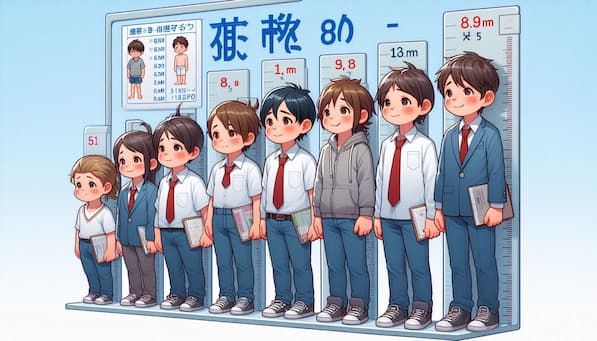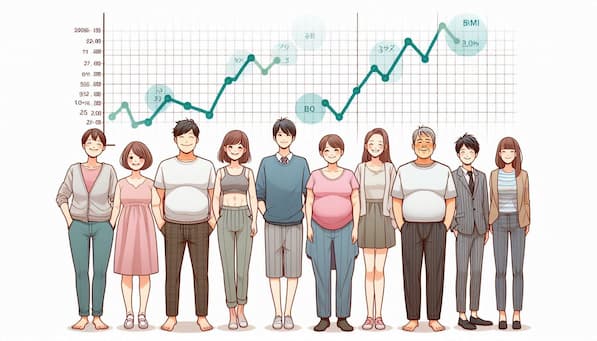Hara Hachi Bu: The Japanese Secret to Healthy Living and Longevity

In the Okinawan dialect, the phrase "Hara Hachi Bu" translates to "Eat until you’re 80% full." This simple yet profound principle has guided generations in Japan, particularly in Okinawa—home to some of the world's longest-living people. Rooted in mindfulness and moderation, Hara Hachi Bu offers insights into health, longevity, and maintaining a balanced BMI.
Read more
Japan’s Shokuiku: A Blueprint for Nutritional Education and Balanced Living

In Japan, health and well-being go beyond personal responsibility—they are deeply rooted in cultural practices and national policies. One of the most innovative approaches to fostering a healthy lifestyle is Shokuiku, or “food education.” This concept, formalized by Japan’s government, emphasizes the importance of understanding food, nutrition, and eating habits to promote a healthier society.
Read more
BMI and Longevity: What Japan Teaches the World

Japan has long been recognized for its remarkable longevity, with citizens often living well into their 80s and beyond. While many factors contribute to this longevity, one key element is the country’s unique relationship with Body Mass Index (BMI). In Japan, BMI is not just a number—it’s a reflection of balanced living, preventative health practices, and cultural habits that promote well-being.
Read more
Japan’s BMI Standards for Children and Adolescents

Body Mass Index (BMI) is a valuable tool for assessing the weight status of children and adolescents. In Japan, where cultural values and a proactive healthcare system emphasize the importance of maintaining a healthy weight from a young age, BMI standards for youth are tailored to align with developmental stages and health priorities.
Read more
BMI and Health Trends in Japan: What Makes It Unique?

Japan’s unique BMI and health trends are the result of a harmonious combination of cultural practices, dietary habits, and proactive healthcare policies. While no system is perfect, Japan’s approach offers valuable insights into achieving better public health outcomes.
Read more
How Does Japan’s Ideal BMI Differ from Western Standards?

Japan’s ideal BMI reflects its health-conscious culture and proactive healthcare system, emphasizing prevention over treatment. However, the stricter standards may also contribute to societal pressure to remain slim, especially for women. In contrast, Western countries prioritize broader acceptance of body diversity but face higher obesity rates as a result.
Read more
What is the Average BMI in Japan?

Japan’s average BMI of 22–23 is a testament to the country’s healthy dietary habits, active lifestyle, and focus on preventative healthcare. These factors not only contribute to a lower BMI but also play a significant role in Japan’s status as a global leader in health and longevity.
Read more
BMI in Japan: Understanding Health Guidelines and Cultural Perspectives

Explore how Japan's unique BMI guidelines reflect cultural attitudes and health policies. Discover the country's lower thresholds for obesity, public health initiatives like the Metabo Law, and the impact of traditional diets on maintaining a healthy weight.
Read more















